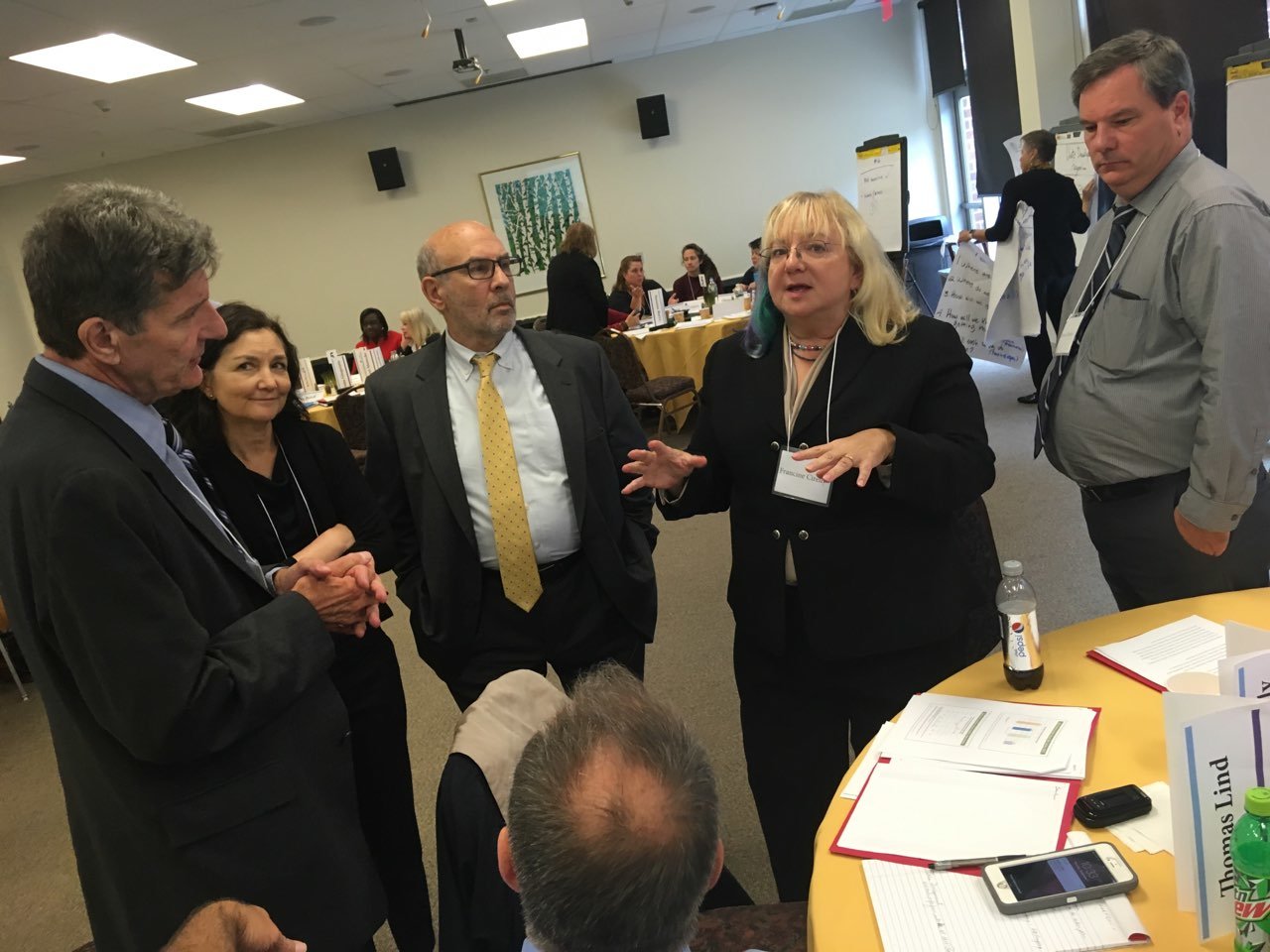 On September 6 and 7, 2017, the New Jersey Department of Human Services, Department of Health, and Department of Children and Families, in partnership with the CDC’s National Behavioral Health Network for Tobacco and Cancer Control (NBHN), the Smoking Cessation Leadership Center (SCLC) at the University of California, San Francisco, the Substance Abuse and Mental Health Services Administration (SAMHSA), and, held a summit to address the high prevalence of smoking among individuals with mental illness and/or substance use disorders in the state of New Jersey. This summit included a select number of leaders and stakeholders in behavioral health, Medicaid and insurance services, and cancer control (see Appendix A). There was also a strong representation of those working with at-risk youth, children, and families, which allowed much attention to be placed on tobacco prevention efforts in addition to cessation. The summit produced a state-specific action plan including practical strategies that aim to significantly increase cessation and quit attempts, increase tobacco use prevention, and ultimately reduce the tobacco use prevalence among the behavioral health population.
On September 6 and 7, 2017, the New Jersey Department of Human Services, Department of Health, and Department of Children and Families, in partnership with the CDC’s National Behavioral Health Network for Tobacco and Cancer Control (NBHN), the Smoking Cessation Leadership Center (SCLC) at the University of California, San Francisco, the Substance Abuse and Mental Health Services Administration (SAMHSA), and, held a summit to address the high prevalence of smoking among individuals with mental illness and/or substance use disorders in the state of New Jersey. This summit included a select number of leaders and stakeholders in behavioral health, Medicaid and insurance services, and cancer control (see Appendix A). There was also a strong representation of those working with at-risk youth, children, and families, which allowed much attention to be placed on tobacco prevention efforts in addition to cessation. The summit produced a state-specific action plan including practical strategies that aim to significantly increase cessation and quit attempts, increase tobacco use prevention, and ultimately reduce the tobacco use prevalence among the behavioral health population.
The purpose of the state strategy session was to convene a carefully selected group of public health leaders and stakeholders in New Jersey to work together to find applicable solutions to reduce tobacco use among individuals with behavioral health conditions. The day and a half format began with attendees viewing a comprehensive gallery walk that showed national and state represented data on tobacco-related use, policy, and quality of care for this vulnerable population. This led to the group establishing baseline data points that will be tracked over time to measure progress towards reducing the smoking prevalence. The participants then discussed specific strategies to overcome existing barriers to smoking cessation and prevention as well as ways to engage this vulnerable population.
New Jersey is in the midst of agency transition, as the Division of Mental Health and Addiction Services will be moved into the Department of Health from the Department of Human Services. The summit planning team recognized this merger as a unique opportunity for these groups to join forces to strengthen and align future efforts as they work to reduce the tobacco prevalence among the behavioral health population in New Jersey.
New Jersey’s action plan was created using the Performance Partnership model. Jolie Bain Pillsbury, the summit’s results-based accountability facilitator, guided participants through a series of questions that frame the action plan and produced the baselines, targets, and strategies.
